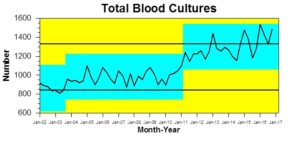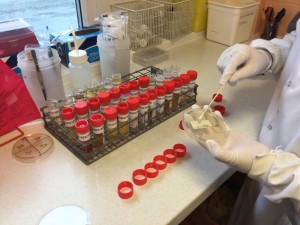 Medicine is a serious business and when you hear harrowing stories of sepsis, how do you respond? Certainly, many of the accounts you will read, or perhaps you have witnessed through personal exposure to family or friends who have had some form of sepsis, can be very disturbing. Survivor accounts can be as equally distressing to all those allied to the caring professions and for all of us beg the question, what more can we do to improve diagnosis? In Wales, as in other parts of the UK early recognition and detection of sepsis is key to early interventions. The … Read the rest
Medicine is a serious business and when you hear harrowing stories of sepsis, how do you respond? Certainly, many of the accounts you will read, or perhaps you have witnessed through personal exposure to family or friends who have had some form of sepsis, can be very disturbing. Survivor accounts can be as equally distressing to all those allied to the caring professions and for all of us beg the question, what more can we do to improve diagnosis? In Wales, as in other parts of the UK early recognition and detection of sepsis is key to early interventions. The … Read the rest
Little things
 I have just completed my on-call week. As many will know our working pattern means one consultant is first on service for a seven day period. This ensures a degree of continuity when we receive calls and are dealing with the acute services. In this role, we are the first point of contact for enquiries and I thought therefore I would reflect on a couple of the highlights.
I have just completed my on-call week. As many will know our working pattern means one consultant is first on service for a seven day period. This ensures a degree of continuity when we receive calls and are dealing with the acute services. In this role, we are the first point of contact for enquiries and I thought therefore I would reflect on a couple of the highlights.
Little Thing #1:
One of my local GP’s rang to ask for a urine sensitivity result. I am always at pains to be as helpful as I possibly can when I … Read the rest
Urine triggers
 One of my lab scientists highlighted how a few years ago, when working in a smaller laboratory at a time when they were severely short staffed, they had to take the urgent decision to stop testing any urine sample that came into the laboratory without any clinical details.
One of my lab scientists highlighted how a few years ago, when working in a smaller laboratory at a time when they were severely short staffed, they had to take the urgent decision to stop testing any urine sample that came into the laboratory without any clinical details.
There was a two fold effect: the absolute numbers of urine samples arriving in the laboratory, prior to any being rejected for lack of clinical information reduced and secondly, the clinical information on those samples arriving improved dramatically.
Some time later, the staffing situation improved and the lab felt able to stop … Read the rest